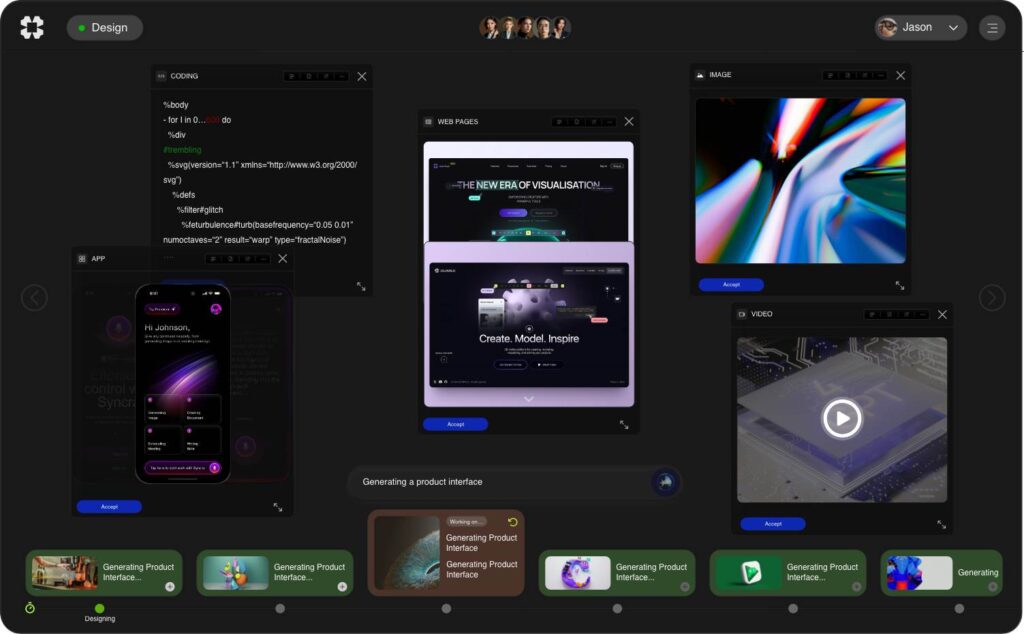The landscape of business is evolving rapidly, propelled by the integration of artificial intelligence (AI) into various operational facets. Organizations are recognizing the importance of AI digital transformation, predictive analytics, and AI fraud detection systems. This article delves into the significance of these technologies, providing insights into industry applications and trends, alongside practical use cases.
.
**Understanding AI Digital Transformation**
AI digital transformation refers to the integration of AI technologies into all aspects of business operations, fundamentally altering how organizations manage and deliver value to their customers. This transformation goes beyond merely automating processes or enhancing efficiency; it fundamentally changes the business model, culture, and customer interaction strategies.
A report by McKinsey highlights that 80% of executives believe that AI will significantly change their companies within the next five years. The potential for AI digital transformation is vast, enabling companies to streamline operations, enhance customer experiences, and make data-driven decisions.
.
**Predictive Analytics: Transforming Business Decisions**
Predictive analytics involves using statistical algorithms and machine learning techniques to identify the likelihood of future outcomes based on historical data. Organizations leveraging predictive analytics can anticipate trends, optimize operations, and mitigate risks, profoundly impacting their decision-making processes.
For example, in retail, companies like Amazon employ predictive analytics to foretell customer purchasing behavior, allowing them to stock inventory efficiently and tailor marketing efforts. According to a study by Deloitte, organizations utilizing predictive analytics can increase productivity by up to 14%.
Moreover, predictive analytics finds applications across various industries, including healthcare, finance, and logistics. In healthcare, for instance, predictive analytics tools can analyze patient data to forecast hospital readmissions, enabling proactive care measures. The financial sector uses predictive models to assess credit risks, enhance fraud detection, and improve customer segmentation strategies.
.
**AI Fraud Detection: Safeguarding Businesses in the Digital Age**
As businesses increasingly rely on digital solutions, the risk of cyber threats and fraud has escalated, making AI fraud detection systems a critical component of modern business strategies. AI-driven fraud detection leverages machine learning algorithms to identify anomalous behavior and patterns that deviate from normal transactional trends.
A significant advantage of AI fraud detection systems is their ability to learn from new data, continuously refining their models to adapt to emerging threats. According to a report by The Association of Certified Fraud Examiners (ACFE), organizations that utilize machine learning in their fraud detection strategies witness a 40% reduction in fraud-related losses.
Key industries employing AI fraud detection include banking, insurance, and e-commerce. In the banking sector, AI systems can analyze user transactions in real time, flagging suspicious activities that warrant further investigation. E-commerce platforms apply AI algorithms to monitor transactions, providing an extra layer of security against fraudulent purchases.
.
**Industry Applications and Real-World Use Cases**
1. **Banking and Finance**: The integration of AI digital transformation and predictive analytics within the banking sector is groundbreaking. Banks employ AI algorithms to streamline loan approvals by assessing creditworthiness more efficiently through predictive models. For example, JPMorgan Chase has successfully implemented AI to review legal documents, increasing efficiency and accuracy. In addition, their AI fraud detection systems actively monitor transactions in real time, greatly reducing the risk of financial fraud.
2. **Healthcare**: In the healthcare industry, organizations are carrying out AI-driven predictive analytics projects to enhance patient outcomes. For instance, Mount Sinai Health System uses predictive analytics to forecast patient admission rates, allowing for better staffing and resource allocation. Furthermore, AI fraud detection systems are employed to identify suspicious billing practices, ensuring compliance and reducing financial losses.
3. **Retail**: Retailers such as Walmart and Target leverage predictive analytics to optimize inventory management and personalize customer experiences. By analyzing customer buying patterns, they can predict demand more accurately, allowing for efficient stocking and reduced waste. AI fraud detection solutions in retail help in monitoring transactions for fraudulent activities, protecting both the business and its customers.
4. **Insurance**: The insurance industry has seen significant advancements through AI digital transformation. Companies like Progressive utilize predictive analytics to process insurance claims more efficiently, reducing processing time and costs. Additionally, AI fraud detection systems help insurers identify fraudulent claims, safeguarding their financial health and ensuring that genuine claims are expediently processed.
.
**Trends Impacting AI Digital Transformation**
Several trends are influencing the trajectory of AI digital transformation, predictive analytics, and AI fraud detection:
1. **Integration of Artificial Intelligence with IoT**: The Internet of Things (IoT) generates vast amounts of data, providing a goldmine for predictive analytics. Combining AI with IoT can enhance operational efficiency and enable predictive maintenance, particularly in manufacturing and logistics.
2. **Increased Focus on Customer Experience**: Businesses are employing AI to personalize customer interactions by leveraging predictive analytics. This trend is becoming crucial as companies seek to build customer loyalty through tailored experiences.
3. **Regulation and Compliance**: As AI technologies evolve, so too do the regulatory frameworks surrounding them. Businesses must navigate these complex regulations, particularly in the realm of data privacy and security, which has a direct impact on the implementation of AI fraud detection systems.
4. **Ethical AI Practices**: As AI matures, there is a growing emphasis on ethical AI practices. Businesses are recognizing the importance of transparency and fairness in AI algorithms, particularly in sensitive areas such as finance and healthcare.
.
**Conclusion: The Road Ahead**
The synergy of AI digital transformation, predictive analytics, and AI fraud detection is reshaping industries, offering unprecedented opportunities for those willing to embrace this technological revolution. Companies adopting these technologies are not only enhancing operational efficiency but also safeguarding their interests in an increasingly complex digital landscape.
As the adoption of AI continues to surge, organizations must stay ahead of the curve by investing in robust predictive analytics frameworks and advanced fraud detection systems. By doing so, they can navigate the challenges of the digital age while capitalizing on the myriad benefits AI integration offers.
In summary, AI technologies are no longer optional; they are imperative for organizational success in the modern business environment. The time is ripe for companies to embark on their journey of digital transformation to foster growth, resilience, and innovation.
.
**Sources**
1. McKinsey & Company. (2023). “The Future of AI and the Opportunities in Business.”
2. Deloitte. (2023). “Unlocking the Power of Predictive Analytics.”
3. Association of Certified Fraud Examiners. (2023). “The Impact of AI in Fraud Detection Techniques.”
4. JPMorgan Chase. (2023). “Enhancing Business Processes through Digital Transformation.”
5. Mount Sinai Health System Case Study on Predictive Analytics.
6. Progressive Insurance Company Implementation Report on Claim Processing.
.
This comprehensive exploration offers a snapshot of the impact and potential of AI technologies across various sectors, urging organizations to prioritize their digital transformation strategies.




















